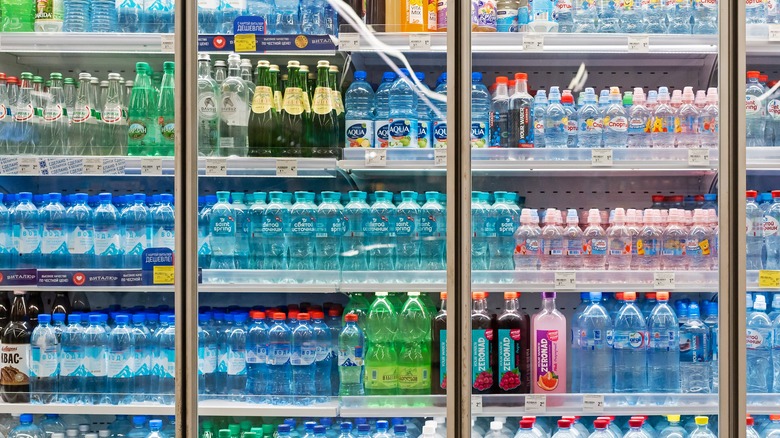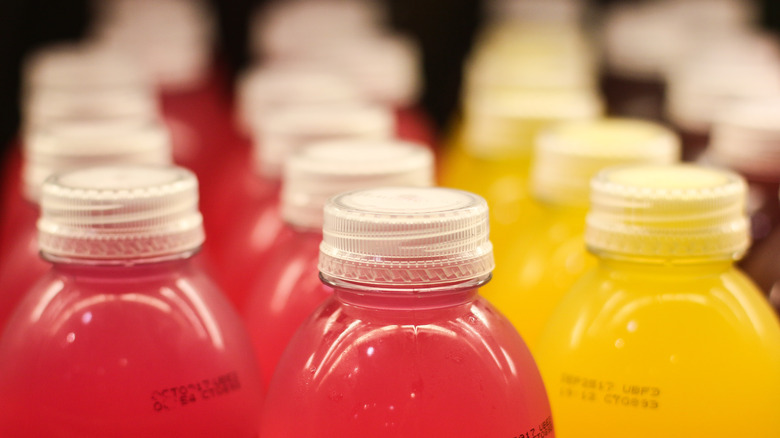Read The Label Twice Before Buying Flavored Waters
If you're not a fan of plain water and often opt for a fun flavored variation to hit your hydration goals, there may be a stealth ingredient you didn't know you were getting: caffeine. Even if the bottle is labeled front and center with the word "caffeine," odds are you're not stopping to check for any indication that your water might contain a buzz when you're grabbing a quick thirst quencher from the refrigerated section of the store. A seemingly innocuous can of flavored Poland Spring or Perrier may be a caffeine offender.
You can keep an eye out for words that indicate the stimulant may be lurking, such as boost, energize, energy, pep, or power. Other clues can be found in the flavors; anything labeled as green tea, black tea, white tea, yerba mate, or a coffee infusion most likely contains caffeine. Some brands boast "natural caffeine" or "plant-based caffeine," but caffeine is caffeine.
If your goal is hydration, caffeine may be a counterintuitive choice if you're consuming the water beverage in larger amounts. Caffeine has a diuretic effect by encouraging blood flow to your kidneys and increasing your urine output. One can or bottle of flavored water with added caffeine can easily contain around 125 milligrams of the stimulant. For reference, an 8-ounce cup of coffee has 96 milligrams, and the recommended maximum daily amount of caffeine consumption for adults is 400 milligrams, per Healthline. If you're popping a few cans a day, that can quickly add up.
Other additives to look out for in flavored water
Being a label sleuth for caffeine also offers some other benefits. That flavored water may contain other additives you choose to avoid for various reasons. Sugar is a common culprit that puts the flavor in flavor. If it's labeled "sugar-free" or "zero added sugar," it may still contain artificial sweeteners such as stevia, aspartame, or sucralose. Some brands contain citric acid, which is often derived from corn and can be an issue for people with an allergy or sensitivity to it. Some products may have added food dyes or colorings. On the other hand, they might contain ingredients you are seeking out, such as electrolytes, ginseng extract, or B vitamins.
While it's a suitable alternative for non-coffee lovers who still want a boost in the morning, or those looking to hydrate while also gaining energy, flavored water with caffeine is best left as a consumer-driven decision and not a hidden component. Doing your due diligence and reading the label lets you know exactly what you're getting.

